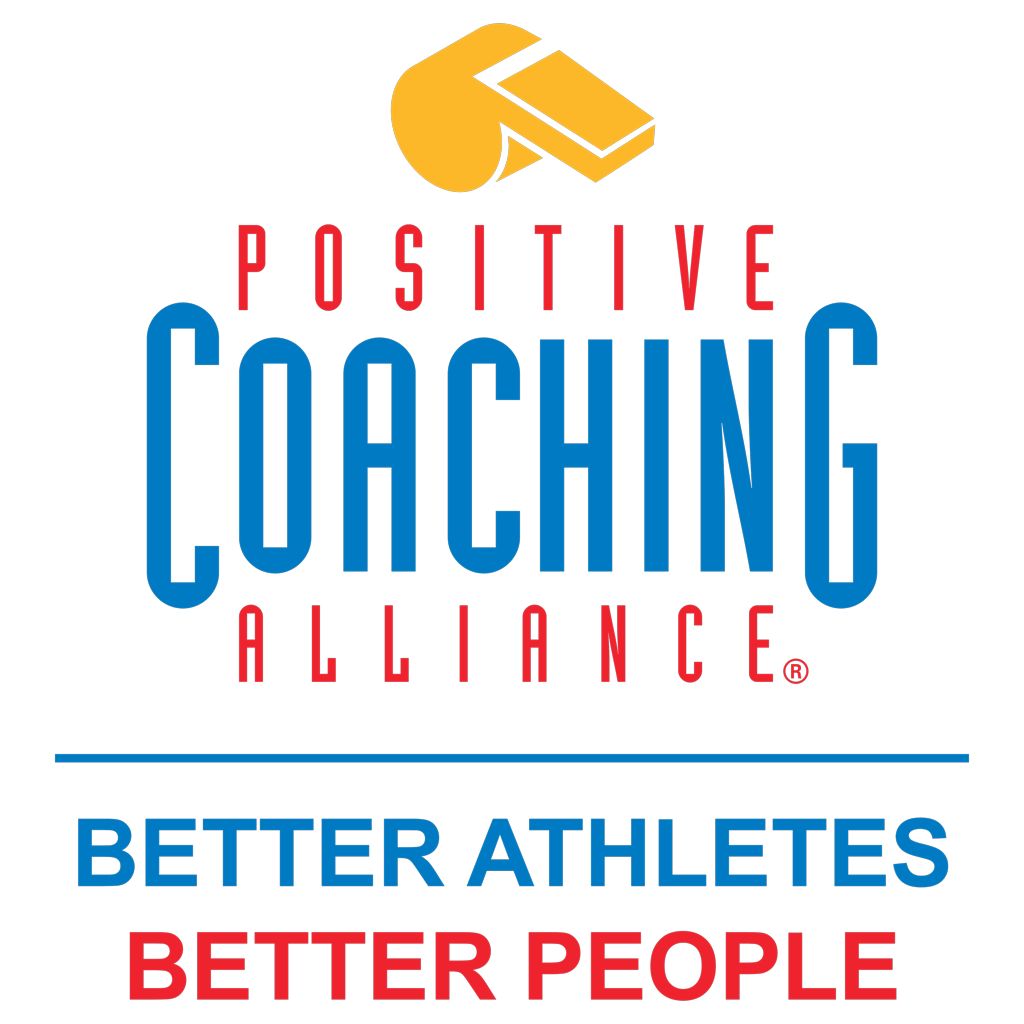COACH RESOURCES
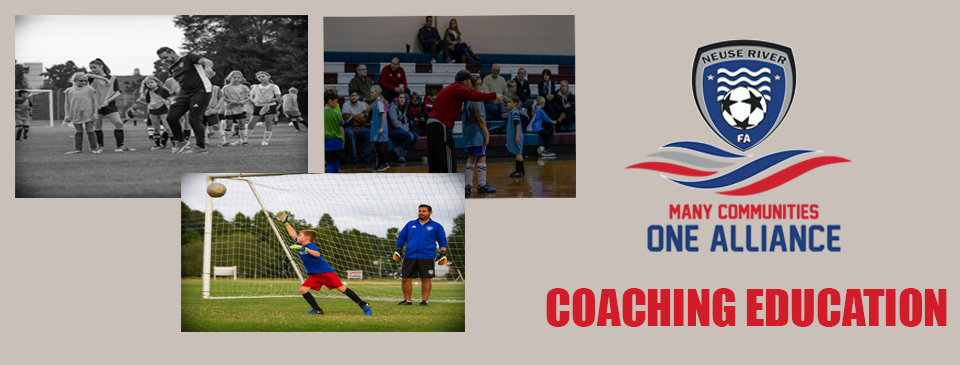
MANAGER RESOURCES
Are you interested in volunteering as a team manager but not sure what a team manager does?
Team managers are vital to a successful season. Without volunteers to fill this role teams don’t function as efficiently as we need them to. Our goal is to provide you the support you need to make the managers role easy to do so you can support you coach and team when and where they need you the most. NRFA has provided a list below of items that are handled by the team manager. We would like to make sure that all team managers understand what is expected, prior to making the commitment to be a team manager for the next soccer year. This list is not all inclusive, and some items may vary depending on your level of play and division, but this list is a good overview of what is required.
Your role as team manager is instrumental to the success of your team and the club. Many teams will have two managers; one that handles paperwork and communication and another that handles money and is the team treasurer.
After reviewing the list of requirements below and you feel that you would like to volunteer for this position on your team, please contact your coach and the NRFA Administrator as soon as possible at [email protected]
- Risk Management Background Check:Risk Managment
- Attend Managers Meeting usually scheduled within a week after tryouts
- Medical Waiver:Medical Release form
- Birth Certificate
- Carding picture
- Help in organizing uniform orders
- Set up EIN for checking account
- Open a checking account
- Formulate a team budget
- Help organize scholarship paperwork for players
- Collect Team Fees for Budget
- Inform NRFA of anyone that is delinquent in team fees
- Organize Referee fees
- Complete the Intent to Play form
- Schedule matches with all teams in your bracket. Please note: many times the window to schedule games for the Fall season is usually around the beginning of July and the beginning of December for the Spring season.
- Document games in an Excel form that is provided to you
- Register for tournaments
- Enter matches, trainings and tournaments into TeamSnap for team use and organization
- Enter score for season matches
- Reschedule matches if needed
- Must attend the Team Carding meeting to complete player passes
- Organize binder according to example given by NRFA
- Keep player passes "safe" and organized in team binder at all times
- The team binder is to be brought to every game and tournament by team manager
PARENT RESOURCES
FINANCIAL ASSISTANCE
The Neuse River Futbol Alliance Board of Directors realizes that the cost of playing competitive youth soccer can be outside the means of some families. With that in mind, we have created a Scholarship Fund to help assist those families from a financial need base perspective.
The purpose of the Youth Scholarship program is to provide underprivileged or needs-based youth the opportunity to train, develop and play youth soccer in our community. It is intended to serve as a financial assistance program for those applicants and families requiring temporary or permanent assistance.
Scholarships are available for all levels of play offered by the organization and shall cover some percentage of Neuse River FA registration fees. Please note for those receiving an award it requires a full season or full-year commitment depending upon the age group of the team.
To be considered, candidates must submit a completed application form, along with ALL required information by the appropriate deadlines.
Fall Deadlines:
- June 30 for Classic play
Spring Deadlines:
- December 1 for Classic play
To be eligible, candidates must first demonstrate a financial need for assistance, commit to making 75% of all practices and games for the season, as well as commit to volunteering hours of service to the organization.
A committee will review all applications. The review process will include scoring & ranking of each application.
After review, applicants will be notified by mail or e-mail of their acceptance. Notification will occur no later than 30 days from the application deadline.
SPANISH VERSION OF THE APPLICATION: CLICK HERE
ENGLISH VERSION OF THE APPLICATION: CLICK HERE
PLAYER RESOURCES
Neuse River FA is committed to providing opportunities for our players on the field, off the field and at home. Players should look for ways to keep their technical skills sharp, grow their tactical knowledge (Soccer IQ) and improve and/or maintain their fitness levels.
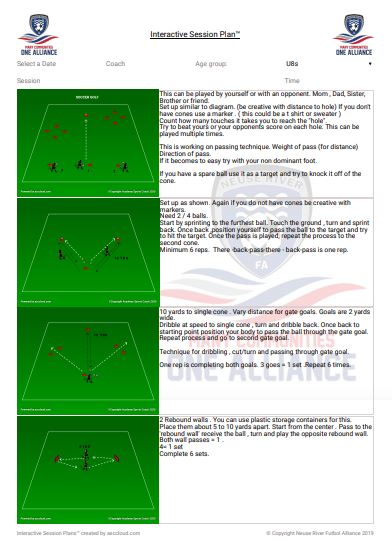
Some great videos to work on at home!!
Concussion Protocol
A concussion can be difficult to recognize on the field. Most occur without a loss of consciousness or an obvious sign that something is wrong with a player’s brain function. They can occur at any time throughout games or practice, as a blow to the head or body from contact with the ground, the ball or another player. Working with leading physicians for more than a decade, U.S. Soccer created Recognize to Recover resources that will help coaches, players, parents and referees identify the signs and symptoms of concussion and immediately take action with the appropriate treatment.
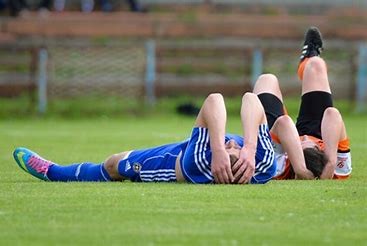
If you think that your child has sustained a concussion, you might see any or all of the following signs:
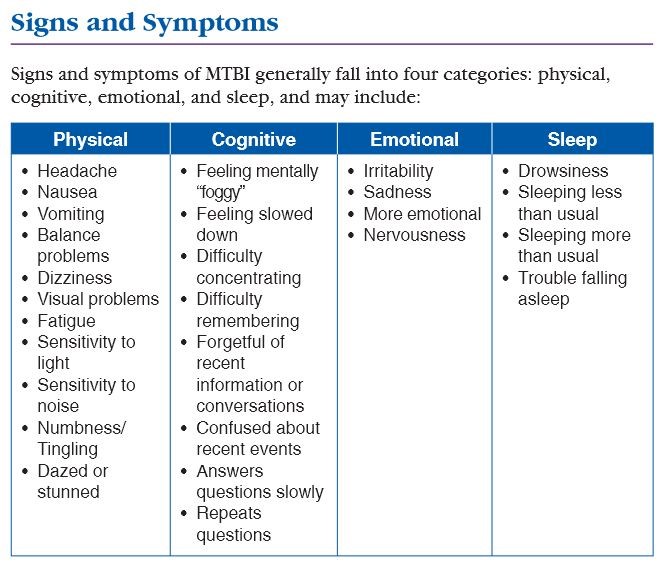
Seek immediate medical attention if your child experiences any of the following signs after the injury:
- Headaches that Worsen
- Neck Pain
- Unusual Behavior Change
- Weakness/Numbness in Arms/Legs
- Looks Very Drowsy (Cannot be Awakened)
- Repeated Vomiting
- Focal Neurologic Signs (Lacerations, Fractures, Bruising, Raised Skin, etc.)
- Change in State of Consciousness
- Can't Recognize People or Places
- Increased Confusion or Irritability
- Slurred Speech
- Seizures
A CT Scan, MRI, or another imaging method may be administered in the Emergency Department of a hospital for the purposes of either diagnosing or ruling out a structural abnormality to the brain or skull following the injury.
Mild traumatic brain injuries typically require days or weeks to recover from, depending on gender, age, activity level, concussion history, and many other personal factors. However, recovery from some mild traumatic brain injuries can take months or even years. Every person's brain and injury situation is unique, and recovery must be tailored to the needs of the individual. While some youth athletes do not feel a disruption in their life after having sustained a concussion, many find that their ability to effectively perform academic and other lifestyle activities (e.g., driving a car) is greatly affected by a concussive incident. In any case, lingering problems following a concussion should be a signal that you should consult with a healthcare professional properly trained in concussion management. As with most medical problems, early detection and treatment of a concussion is the best course of action with regard to recovery and prevention of future problems.
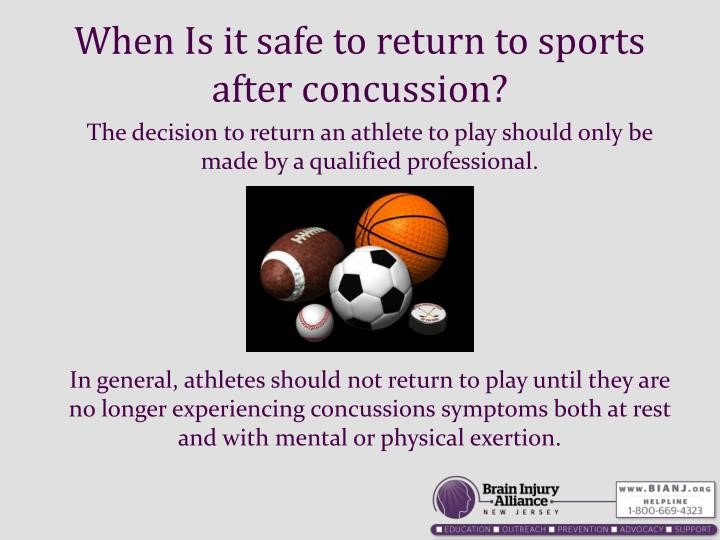
It is very important to NEVER return to play (physical education class, sports, practice, or game) while still experiencing symptoms of a concussion. The same sentiment can be spoken for cognitive activities (school work, video games, text messaging, etc). Management of concussive injuries should not only focus on the physical demands but also the cognitive/mental exertion placed on the recovering brain. Incorporating both cognitive and physical rest into the concussion management protocol is vital to proper recovery. Remember, the presence and/or recurrence of post-concussion symptoms are a sure sign that you have NOT fully recovered from this injury.
While most athletes can return to play (physical activity) in about 7-10 days, some may take longer for their symptoms to subside and may have a more prolonged absence from sports. This may be especially true in the young athlete. Once all symptoms subside and the scores on any additional objective clinical tests improve, your child may begin a return-to-play progression, supervised by a healthcare professional. This progression often takes place over a period of 4-6 days and allows the athlete to gradually return to physical activity, and eventually sport. It is recommended that the child be cleared by a physician before they start this process.
The return to play (RTP) protocol is a medically supervised stepwise process which involves a gradual increase in activity intensity and duration over the course of several (4-6) days. At each stage of the return to play protocol, specific objectives and restrictions are implemented to make sure a gradual progression is followed by the athlete and also allows for monitoring of signs and symptoms. In some cases, your healthcare professional may also want to repeat objective concussion assessments following exertion. The athlete is allowed to continue to the next level/stage if he/she is asymptomatic after the completion of the current stage.
Typically, each phase should occur in a 24 hour period, allowing for the athlete to rest and the observation of the onset of any delayed post-activity signs and symptoms. If any post-concussive symptoms do occur along the stepwise progression, the athlete is required to drop back to the previous asymptomatic stage and allowed to return to the return to play protocol after a rest period of 24 hours.
NRFA Players who are subject to a concussion during season play must receive a signed release form from their physician prior to returning to play.
ACL Injury Prevention And Care
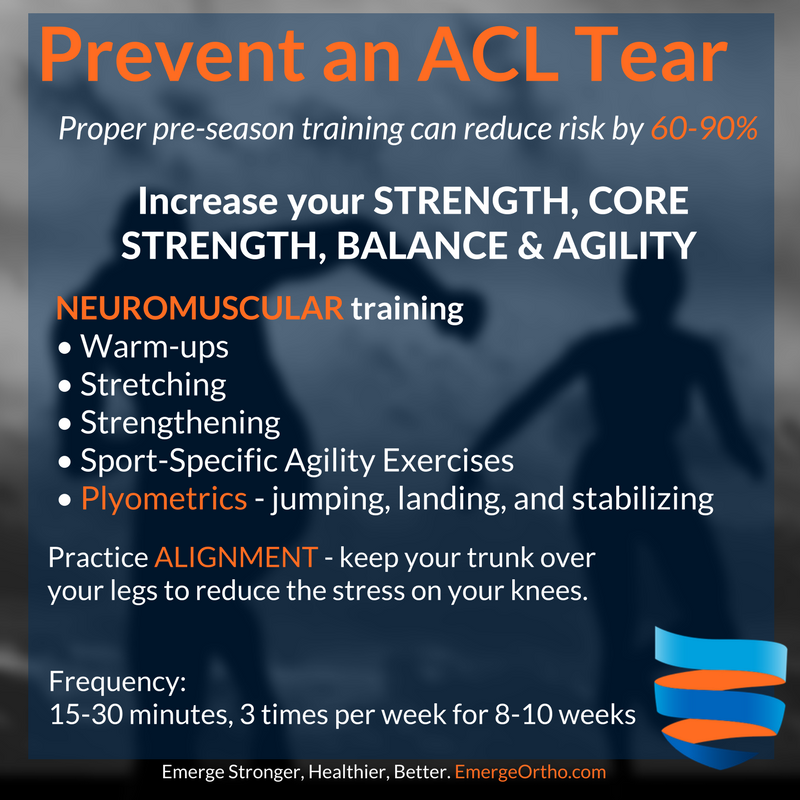
Pre And Post Game Nutrition Tips

Soccer nutrition tips from the pros!
Soccer players cover an average of 5 to 7 miles during a match. All this sprinting, jogging and changing direction require a lot of energy. As energy levels deplete, the risk of making a bad play increases—30 percent of all goals are scored in the last 15 minutes of matches. It's critical that soccer players make their game-day nutrition a priority, so they'll have the energy to perform their best throughout the entire match.
The nutritional needs of soccer players tend to be higher than most athletes due to the constant motion and requirements of the game. Adequate consumption of all macronutrients—carbs, protein and fat—will help you maintain your performance. It's recommended that over the course of a game day, a soccer player's caloric intake should come from 55-65 percent carbohydrates, 12-15 percent protein and less than 30 percent fat. However, a recent study found that even professional soccer players often fail to hit these marks.
Soccer players spend a lot of time running up and down the field, and losing fuel in their legs contributes to "hitting the wall" during a game. Fueling properly before a game has multiple benefits:
- Helps settle the stomach, absorbs gastric juices and prevents you from becoming sluggish before and during exercise.
- Provides fuel for muscles and liver to obtain stored glycogen, which is used as fuel for the brain.
- Brings peace of mind knowing you have enough fuel to get through the event.
Good pre-game nutrition should occur early and often. An ideal meal is carbohydrate rich, low-glycemic for a sustained release of energy into the bloodstream, palatable and well tolerated. A pre-game meal routine might look like this:
- Eat breakfast within the first hour after waking.
- Have a high-carbohydrate, moderate-protein and low-fat and fiber meal 3 to 4 hours before the game.
- Eat a snack about an hour before the opening whistle.
- 1 cup orange juice
- ¾ cup oat cereal
- Medium banana
- Wheat toast with jelly
- 1 cup low-fat yogurt
- Large baked potato
- 1 tsp. trans fat-free margarine or olive oil
- 3 oz. lean turkey, chicken, fish or beef prepared with little oil
- Carrot sticks
- Fresh fruit or ½ cup fruit salad
- 1 cup low-fat milk
- Whole grain pretzels
- Whole grain dry cereal
- Whole grain crackers
- Granola bar
- Whole grain toast
- Whole grain bagel
- Sports drink
Here's a general schedule you can follow for various game times to ensure you're fueling properly.
Eat a carbohydrate-rich dinner the night before and drink extra water throughout the previous day. Eat dry cereal, a bagel with peanut butter or oatmeal before bed. Eat your breakfast/pre-game meal between 6 and 6:30 a.m.
Eat a carbohydrate-rich dinner the night before and drink extra water throughout the previous day. Eat your breakfast/pre-game meal at 7 a.m.
Eat a carbohydrate-rich dinner the night before and drink extra water throughout the previous day. Eat a large high-carbohydrate breakfast with a hearty brunch or light lunch by 10 a.m.
Eat a high-carbohydrate breakfast and lunch with extra fluids. Eat dinner by 5 p.m. or a light meal between 6 and 7 p.m.
Two days before: If possible, cut back on exercise to replenish glycogen stores.
Day before: Eat a high-carbohydrate breakfast, lunch and dinner with extra fluids.
Day of: Eat a familiar high-carbohydrate breakfast. This is not a time to try new foods.
During: Consume carbohydrates every 60-90 minutes to maintain normal energy levels. High fat foods such as nuts provide sustained energy.
This is the best time to replenish your depleted energy stores and recover from intense exercise. Consume carbohydrates and protein within 30-45 minutes after a game. This is when your body is primed to easily put these nutrients to use for recovery:
- Protein provides fuel, rebuilds muscle tissue and reduces post-activity cortisol levels, which can break down muscle.
- Carbohydrate improves glycogen (i.e., stored energy) replacement and synthesis.
- Amino acids from protein help reduce Delayed Onset Muscle Soreness.
In general, it's best to consume 10-20 grams of protein after a game. If you're more active or seem to have trouble putting on muscle, opt for 20 grams.
Carbohydrate intake is more closely linked to your activity:
Your post-game meal doesn't depend on the timing of your game. Whether it's in the morning, afternoon or night, refuel the exact same way.
POSITIVE COACHING ALLIANCE
PCA Videos
